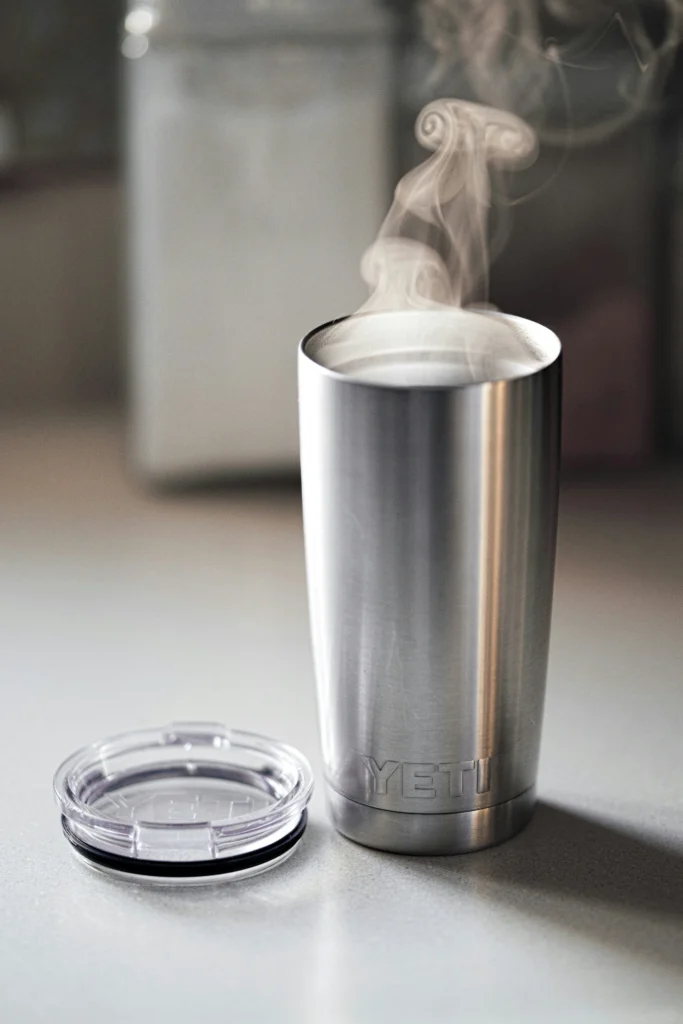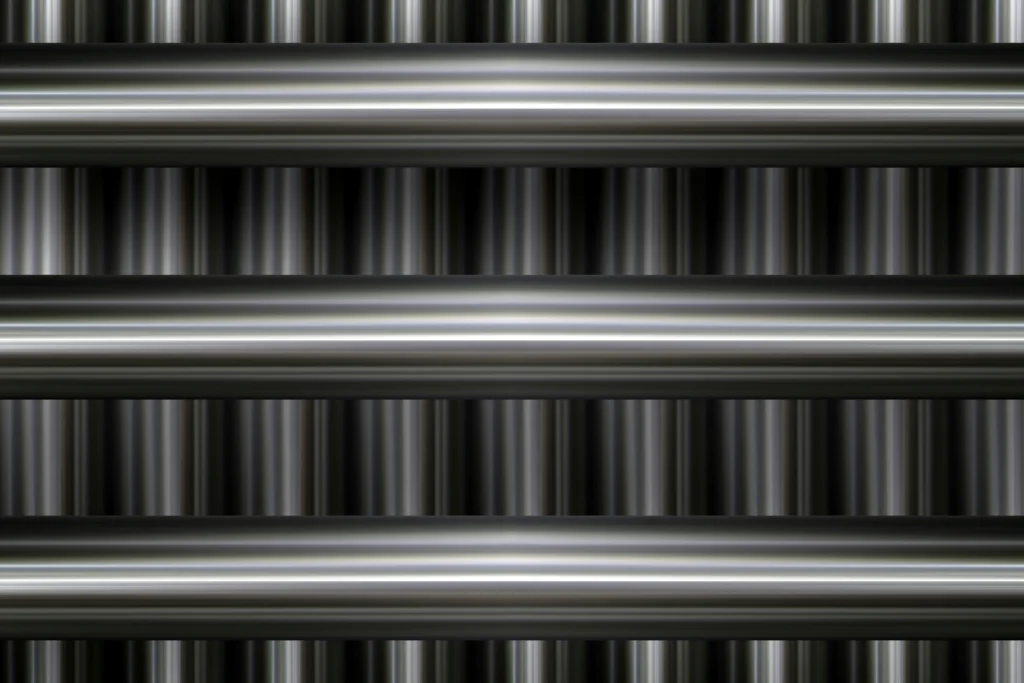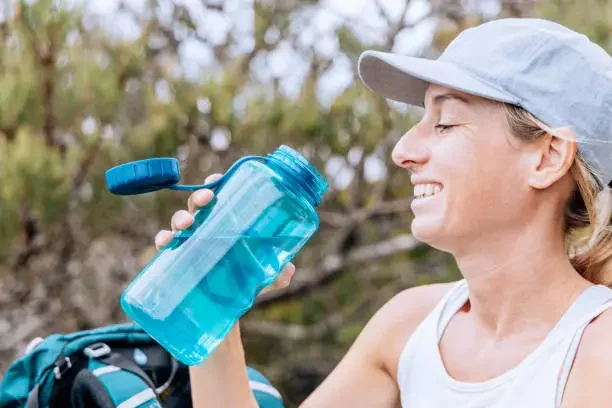Yeti Lead Test: Debunking the Safety Myth Behind Your Favorite Tumbler
Table of Contents
Have you ever wondered if your YETI tumbler or bottle contains lead?
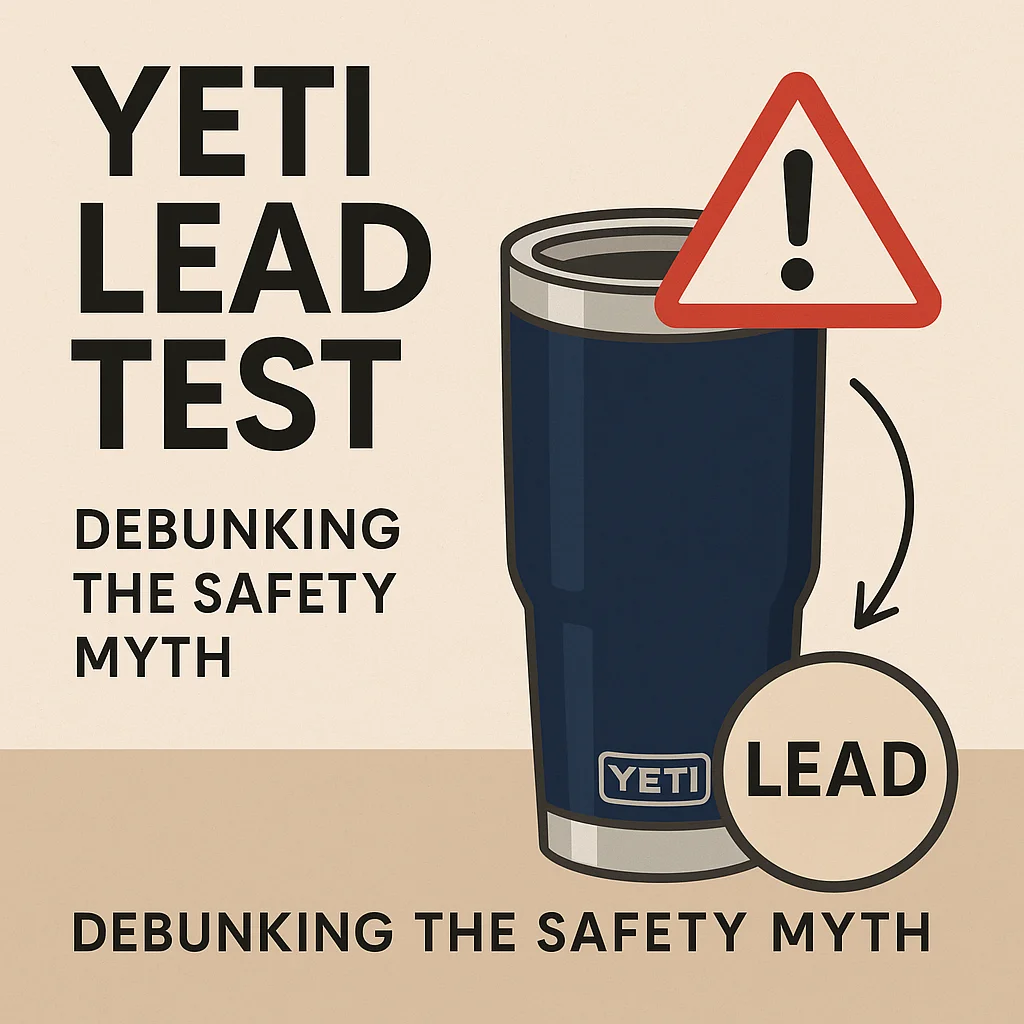
In recent years, concerns about heavy metals in drinkware have sparked debates online. One of the most common questions is whether YETI cups use lead and if they are truly safe to drink from. In this guide, we’ll break down the facts, share what the yeti lead test reveals, and explain why you can enjoy your YETI products with confidence.
What Materials Are YETI Cups Made Of?
YETI drinkware is built with 18/8 stainless steel — a food-grade metal that is durable, rust-resistant, and 100% lead-free. The well-known double-wall vacuum insulation keeps drinks hot or cold for hours.
The only part that raises questions is the vacuum-seal bead at the bottom of the tumbler. This tiny seal is sometimes created using materials that contain lead. But as we’ll explain below, this does not mean your drink is exposed to lead.
The Truth About Lead in YETI Products
Here are the key facts you need to know:
Lead is not in the stainless steel walls or inside surface of the cup.
In some models, the vacuum-seal plug contains trace lead, but it is fully enclosed within a stainless steel cap.
This design means lead never touches your drink or your hands.
YETI also follows strict U.S. and international safety standards. Independent tests confirm the consumer risk is virtually zero.
What a Yeti Lead Test Shows
To address consumer concerns, several labs have performed a yeti lead test. Results consistently show:
No detectable lead inside the drinking area.
Detection limits as low as <0.002 mg/kg, far below any health concern.
Even if the bottom plug were exposed, it would not release measurable lead during normal use.
This confirms that YETI tumblers and bottles are safe for daily use, including hot coffee, cold water, or acidic drinks like juice.
Industry Practices and Comparisons
YETI is not unique. Many vacuum-insulated brands, from budget bottles to premium tumblers, rely on similar sealing methods. Why? Because:
Lead solder creates a more secure vacuum seal that improves insulation.
The bead is permanently sealed and never in contact with liquids.
Some newer brands, like Hydro Flask, have developed lead-free sealing alternatives (e.g., TempShield® insulation with silica beads). However, both approaches meet safety standards, and YETI’s long track record shows no evidence of consumer risk.
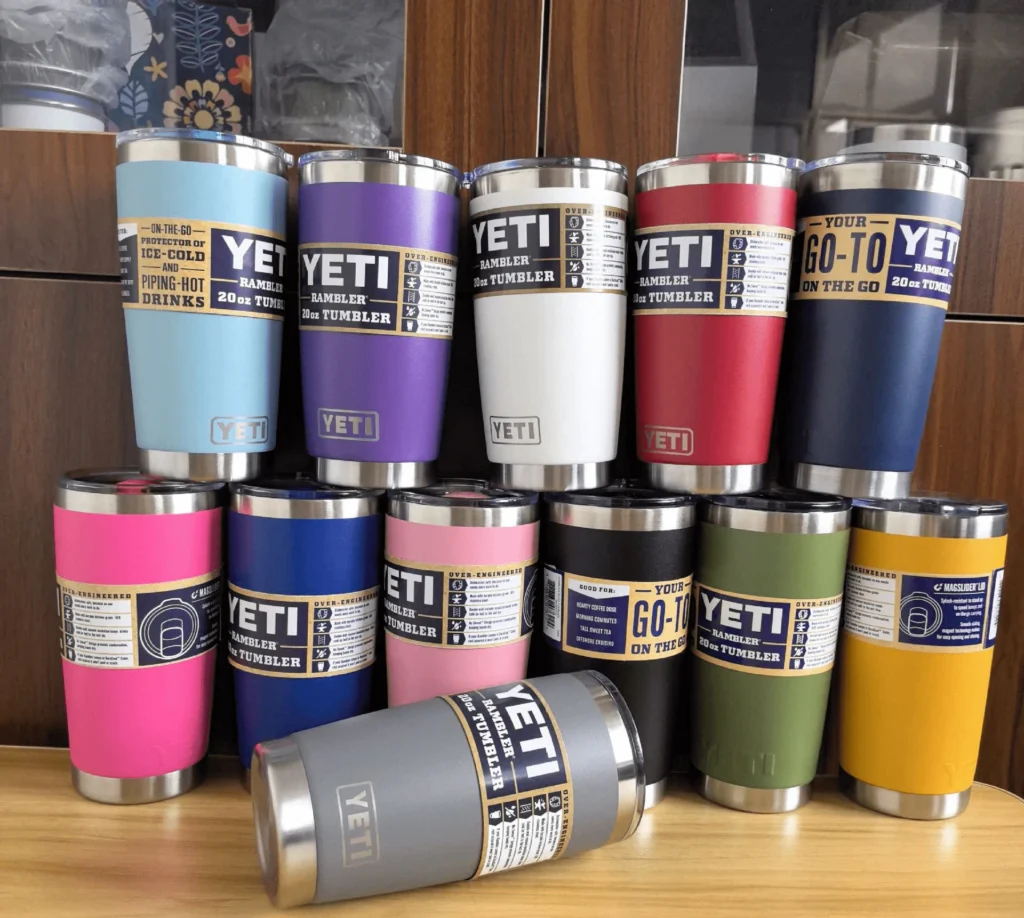
Should You Worry About Lead in YETI?
The short answer: No.
YETI cups are safe for adults and children.
Lab results prove there is no lead where you drink from.
The only lead is hidden in a sealed component, isolated from your beverage.
If you still prefer a 100% lead-free construction, alternatives exist — but for most users, a YETI tumbler remains a reliable, safe choice.
FAQs About Yeti Lead Test
1. Do all YETI cups contain lead?
2. Can a Yeti lead test detect lead in the drinking area?
3. How safe are YETI cups compared to other brands?
4. What happens if the bottom seal breaks?
Final Thoughts
So, what does the yeti lead test really show? That YETI tumblers are designed to meet strict safety standards and keep your drinks fresh without risk. While the manufacturing process may involve trace lead in hidden seals, the design prevents exposure entirely.
Bottom line: you can continue using your YETI cup with confidence.

